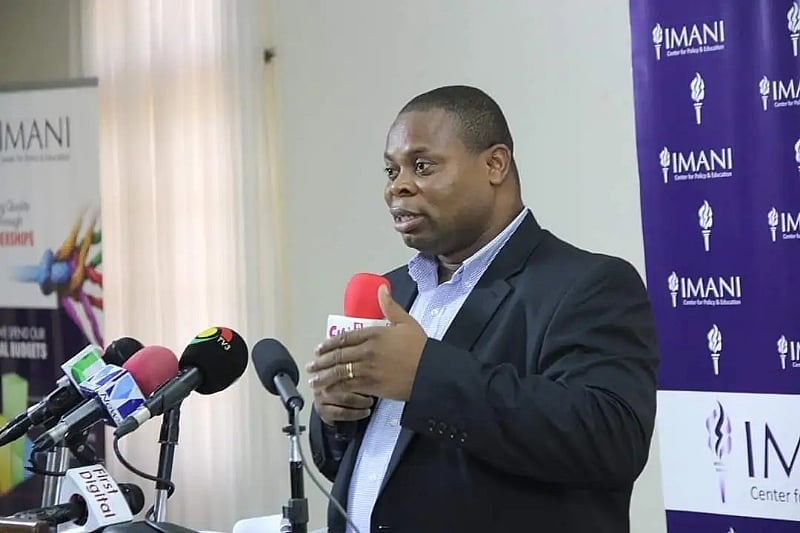The arrest of Alfred Ababio Kumi, also known as Adenta Kumi, a New Patriotic Party (NPP) activist and former parliamentary aspirant, sparked controversy and drew sharp criticism from various quarters, particularly from IMANI Africa’s Founding President, Franklin Cudjoe. Kumi’s apprehension by the National Intelligence Bureau (NIB) on May 23rd was described by eyewitnesses as a heavy-handed, “Rambo-style” operation, raising concerns about the proportionality of the response and the potential for intimidation. The arrest stemmed from a petition Kumi submitted to President John Dramani Mahama, requesting the dissolution of a committee investigating calls for the removal of Chief Justice Gertrude Torkornoo. This action, and the subsequent charges against Kumi, highlighted the delicate balance between freedom of expression, the right to petition, and the need to maintain the integrity of judicial processes.
The crux of Kumi’s petition, and the apparent trigger for his arrest, revolved around an alleged video he claimed to possess. This video purportedly showed two justices, Pwamang and Adibu-Asiedu, along with Supreme Court Justice Yonny Kulendi, dining and discussing the Torkornoo investigation with Thaddeus Sory, the counsel for the petitioner seeking the Chief Justice’s removal. This alleged meeting, reportedly taking place at Santoku Restaurant shortly after the committee’s first sitting, raised concerns about potential bias and impropriety within the investigative process. Kumi’s subsequent public pronouncements about the video, both in media interviews and on his social media platform (X, formerly Twitter), formed the basis of the NIB’s charges against him for false publication.
Franklin Cudjoe, a prominent voice in Ghanaian public discourse, vehemently condemned Kumi’s arrest, labeling it “mindless” and “brute.” He directly addressed President Mahama, urging him to disavow such actions, warning that they could tarnish his legacy. Cudjoe’s intervention underscores the broader implications of this case, extending beyond the immediate circumstances of Kumi’s arrest. It raises questions about the potential chilling effect on free speech and the right to petition authorities, particularly when those petitions involve sensitive matters relating to the judiciary. The forceful nature of the arrest, coupled with the seemingly swift response to Kumi’s petition, fueled speculation about the motivations behind the NIB’s actions.
The intervention of Minority Leader in Parliament, Alexander Afenyo-Markin, secured Kumi’s release later the same day. This intervention further politicized the situation, highlighting the partisan undercurrents often present in such cases. While the release offered a degree of resolution, it did not address the underlying concerns raised by Kumi’s arrest and the charges against him. The incident exposed potential tensions between the executive branch, represented by the NIB, and the judiciary, the subject of Kumi’s petition. It also underscored the role of political figures, like Afenyo-Markin, in navigating such sensitive situations.
The Kumi case illuminates the complexities of balancing competing interests in a democratic society. The right to petition, a cornerstone of democratic participation, must be weighed against the need to protect the integrity of judicial processes and prevent the spread of misinformation. Kumi’s allegations, whether true or false, touched upon sensitive issues of judicial impartiality and the potential for undue influence. The swiftness and severity of the response from the NIB, however, raised concerns about the potential for overreach and the suppression of legitimate dissent. The subsequent release, facilitated by a prominent political figure, further complicated the narrative, suggesting the influence of political considerations in the handling of the case.
The implications of this incident extend beyond the individuals involved. It raises fundamental questions about the use of state power, the protection of fundamental rights, and the role of political influence in legal proceedings. The case serves as a reminder of the fragility of democratic institutions and the importance of constant vigilance in safeguarding them. The debate surrounding Kumi’s arrest and the subsequent charges highlights the need for a transparent and accountable system that upholds the rights of individuals while protecting the integrity of the judicial process. The ongoing discussion will likely shape public perception of both the government’s commitment to these principles and the effectiveness of institutions in upholding them.


